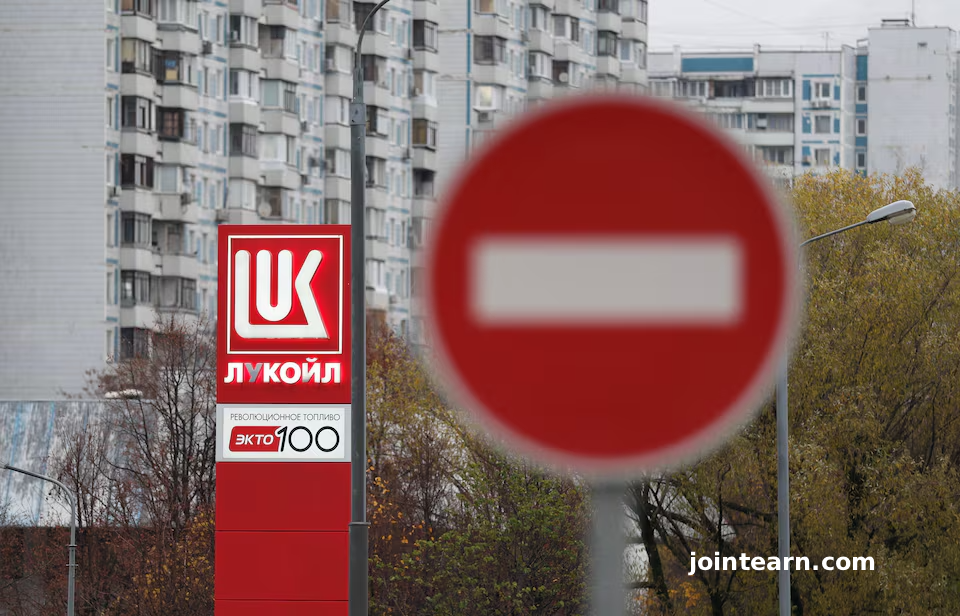
Washington/New York/London, November 14, 2025 – The U.S. Treasury has authorized potential buyers to enter negotiations to purchase Lukoil’s foreign assets, including its Burgas refinery in Bulgaria, after the country moved to seize the plant. This decision comes amid ongoing sanctions on Russia’s major oil companies, Lukoil and Rosneft, imposed last month due to Russia’s war in Ukraine.
The temporary licenses, issued by the U.S. Treasury Department, allow companies to engage with Lukoil through December 13, 2025, regarding potential acquisitions of its international assets. However, any transaction must fully sever ties with Lukoil, and proceeds from sales must be held in escrow inaccessible to Lukoil while sanctions remain in effect.
Background: Lukoil Sanctions and Global Energy Impact
Sanctions on Lukoil and Rosneft target Russia’s energy sector and aim to limit funding for the war in Ukraine. While Lukoil’s foreign operations account for only 0.5% of global oil production, disruptions to these assets have significant implications for energy markets, especially in Europe and Central Asia.
Lukoil operates three European refineries and holds stakes in oilfields across Kazakhstan, Uzbekistan, Iraq, Mexico, Ghana, Egypt, and Nigeria. Its retail network spans hundreds of fuel stations worldwide, including the United States. The company’s international holdings are estimated to be worth approximately $22 billion, based on 2024 filings.
U.S. and Bulgarian Coordination
The U.S. move followed intensive diplomatic and negotiation efforts by Bulgaria, aimed at stabilizing energy supply and ensuring predictability for citizens and businesses. Bulgaria’s Energy Ministry welcomed the Treasury decision, stating that it secures energy stability while respecting international sanctions.
The U.K. Office of Financial Sanctions Implementation also issued licenses permitting continued transactions with Lukoil Bulgaria EOOD and Lukoil Neftochim Burgas AD, which operates the country’s sole refinery in Burgas.
A U.S. Treasury spokesperson emphasized that these authorizations support energy security for partners and allies without benefiting the Russian government. Additional licenses cover transactions involving the Caspian Pipeline Consortium (CPC) and Tengizchevroil projects, which include U.S. and European oil majors alongside Lukoil. CPC transports over 1.6 million barrels of crude per day, representing roughly 1.5% of global oil production, across Russian territory.
Interest from Global Buyers
Private equity firm Carlyle has reportedly shown interest in acquiring Lukoil’s foreign assets and is seeking U.S. Treasury approval to start due diligence. Analysts suggest Carlyle is well-positioned for approval compared to other potential bidders, such as Swiss commodities trader Gunvor, which previously withdrew from discussions after being labeled a Kremlin proxy by Treasury officials.
Other potential buyers include KazMunayGas (Kazakhstan’s state oil firm) and European energy major Shell, as they evaluate opportunities to acquire parts of Lukoil’s $22 billion international portfolio.
Legal experts note that the Treasury license permits entering binding memorandums of understanding and preliminary agreements, but any final acquisition will require a separate, specific license.
Strategic Implications for Global Energy
The Treasury’s authorization reflects the U.S. strategy to maintain energy security for allies while enforcing sanctions on Russia. Successfully transferring Lukoil’s assets to compliant buyers could stabilize European fuel supply, reduce geopolitical risks, and ensure the company’s assets no longer contribute to Russian state revenues.
With international energy markets facing continued volatility, the outcome of these negotiations will have broad implications for oil prices, refinery operations, and supply chains across Europe and beyond.


Leave a Reply